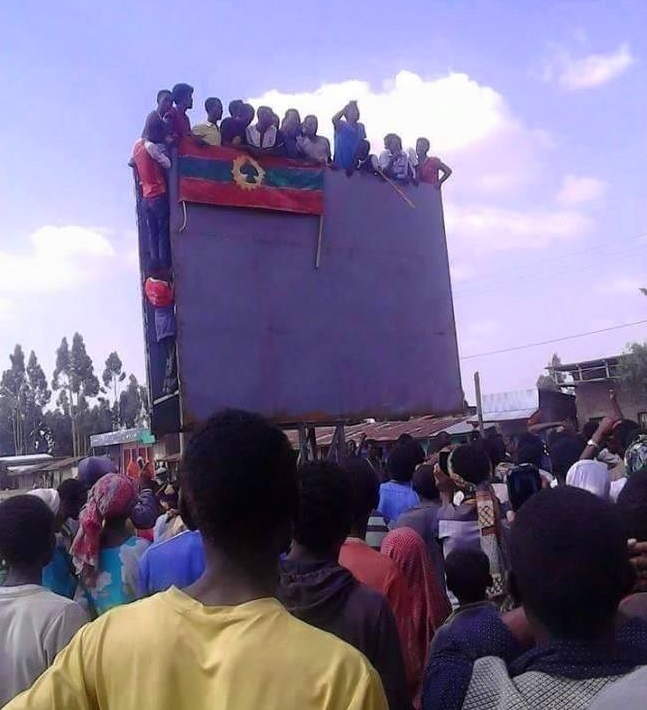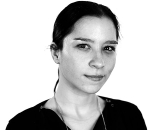Wednesday, August 10, 2016
Monday, March 28, 2016
Ethiopia: Government says Oromia has self-rule but activists vow to continue protests

People in Ethiopia's Oromia state already have self-rule and protesters' demands are already in place, an Ethiopian official told IBTimes UK. Abiy Berhane, minister counsellor at the Ethiopian embassy in London, made the comment as activists said they are still on the streets of Oromia calling for self-rule, the release of political prisoners and the end of military presence in the region.
Protests in Oromia began in November 2015 against a government draft plan to expand the boundaries of the capital Addis Ababa. Demonstrators, mainly from the Oromo ethnic group, argued the so-called "Addis Ababa master plan" would lead to forced evictions of Oromo farmers from their lands and would undermine the survival of the Oromo culture and language.
Who are the Oromo people?The Oromo people are Ethiopia's largest ethnic group and their population amounts to more than 25 million (around 35% of Ethiopia's total population).Oromo people speak Afaan Oromoo, as well as Amharic, Tigrinya, Gurange and Omotic languages. They are mainly Christian and Muslim, while only 3% still follow the traditional religion based on the worshipping of the god, Waaq.In 1973, Ethiopian Oromo created the Oromo Liberation Front (OLF), which stemmed from the discontent over a perceived marginalisation by the government and to fight the hegemony of the Amhara people, another large ethnic group in Ethiopia.OLF – still active today – also calls for the self-determination of the Oromo people. It has been deemed as a terror organisation that carried out violent acts against people in Ethiopia, Somalia and Kenya. The group has always denied such allegations, claiming its mission is to terminate "a century of oppression" against the Oromos.
The government scrapped the master planfollowing increasing agitation which activists claimed led to the death of some 400 people, at least 200 according to a report by Human Rights Watch (HRW), released on 21 February.
The government denied the allegations of violence and claimed the death toll was much lower, but did not give a specific figure.
Berhane explained Ethiopian authorities conducted an assessment on the unrest and admitted they took slow steps in addressing people's legitimate grievances. "Had these demands been addressed quickly and effectively, dissident groups would not have been able to infiltrate peaceful protesters and instigate violence," he said.
"The government does not want to see any of its people die, even the death of one person is one is one too many. What the country needs first and foremost is peace. Inciting violence, creating division, coming up with horrific stories and posting those stories on social media does not help in any way."
Ethiopia’s Oromo people demand equal rights in protests
Largest ethnic group in Ethiopia continues to rally against the government despite crackdown.
Wolonkomi, Ethiopia – Six-year-old Abi Turi and her nine-year-old brother Dereje have not been attending classes in Wolonkomi.
Their school was closed in January as the Ethiopian government began what its critics call a crackdown on protests by the Oromo, the country’s largest ethnic group.
It is uncertain how many people have died in clashes between security forces and protesters since November, when a series of demonstrations began.
Local estimates put the figure at between 80 and above 200. The New York-based Human Rights Watch has said that more than 200 people may have died in about six months, a figure the government denies.
“With regards to allegations from human rights groups or self-styled human rights protectors, the numbers they come with, the stories they often paint, are mostly plucked out thin air,” Getachew Reda, the information minister, told Al Jazeera.
Abi and Dereje’s mother was among those shot in January. She was hit by a bullet in the neck. Despite receiving medical treatment, she died of her wounds in March.
“The little girl cries and keeps asking where her mother is. We feel her pain,” said the children’s grandfather Kena Turi, a farmer. “The older one cried when his mother was shot and died, but now it seems he understands she’s gone.”
Oromo students began rallying to protest against a government plan they said was intended to expand the boundaries of Addis Ababa, the capital, into Oromia’s farmland.
Protests continue
Oromia is the country’s largest region, and many there believe the government did not want to redevelop services and roads, but that it was engaged in a landgrab.
Though the government shelved its “Integrated Development Master Plan” due to the tension, protests continued as the Oromo called for equal rights.
In February, another anti-government rally turned violent. Nagase Arasa, 15, and her eight-year-old brother Elias say they were shot in their legs while a demonstration happened near their home.
“I was in the back yard walking to the house when I was shot,” Nagase told Al Jazeera.
“My brother was in the house. I couldn’t walk I was bleeding. Then I was hit again when I was on the ground I felt the pain then my brother came to help me and he was shot too.”
Ethiopia has an ethnically-based federal system that gives a degree of self-rule to the Oromo people.
But the Oromo opposition, some of whose members have been detained, says the system has been corrupted by the ruling coalition, the Ethiopian People’s Revolutionary Democratic Front.
A ‘marginalised’ community
Merera Gudina, an Oromo politician, said that members of his community feel marginalised — excluded from cultural activities, discriminated against because of their different language, and not consulted in political or economic decisions.
With double-digit growth over the last decade, Ethiopia has one of the fastest-growing economies in the world, but the majority of the Oromo remain poor.
“Until the Oromo’s get their proper place in this country I don’t think it [dissent] is going to go. The government wants to rule in the old way; people are resisting being ruled in the old way,” Gudina said.
Reporting and recording human rights abuses is also risky, activists told Al Jazeera. Local and foreign journalists said attempts were made to intimidate them, with some detained.
Al Jazeera spoke with local reporters who said they were too afraid to even try and cover the issue.
“It’s very dangerous. Everybody is living in fear. They imprison people every day. People have disappeared. Doing this work is like selling my life,” a human rights activist told Al Jazeera, speaking on the condition of anonymity.
Government rejects claims
Kumlachew Dagne, a human rights lawyer, said there was a need for “public forums and consultation for debates on public policy issues” to allow for different views to be heard. He added that the protesters who were injured or killed had not been armed.
“Many of those people were killed after the protests took place many of the people were shot in the back some were shot in the head, which shows that these people were not armed,” he said.
“They were peaceful demonstrators. That is consistent with reports we had from victims’ families.”
The government rejects such claims as exaggerated or fabricated.
“People, whether they are civilians or security officials who have been involved in an excessive use of force, will be held responsible,” Reda said.
He said the government would consult with the Oromo people and “address the underlying problems”.
Subscribe to:
Comments (Atom)
